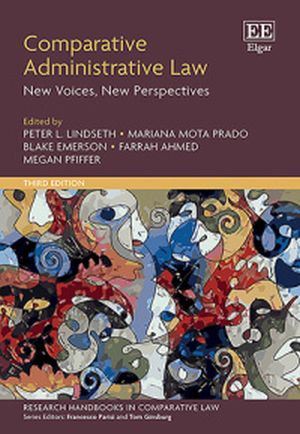
This thoroughly revised third edition of Comparative Administrative Law builds on the legacy of the first two editions, providing a redefined and reinvigorated analysis of pressing issues through original chapters, a renewed group of contributors and a broader geographic scope, with particular emphasis on the Global South.
Leading scholars offer novel perspectives, investigating the intersecting differences between common law and civil law, including cultural traditions and political systems. Most chapters provide comparative analyses of administrative law across at least two legal orders, while others explore comparative law themes and issues within a single jurisdiction. The result of this combination is a rich and detailed description of legal doctrines, institutional arrangements and practices across multiple jurisdictions. Furthermore, key topics such as the plural legacies of decolonization in administrative law, the relationship of administrative law to constitutional politics, and the challenge of legality in administrative governance beyond the state are also covered.
Scholars and students of comparative public law, international economic law, as well as law and development will benefit from this book’s insights. It is also a valuable resource for judges, lawyers, policymakers, regional integration bodies, and NGOs interested in comparative and legal perspectives on regulation, governance, and public bureaucracies.